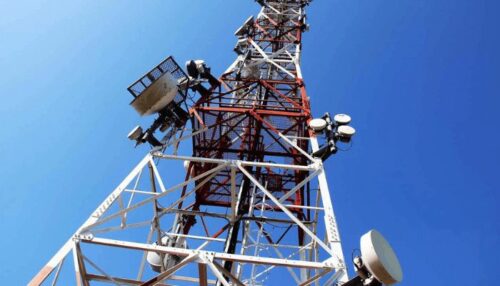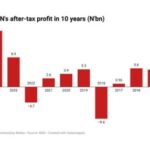In a major push to bridge Nigeria’s digital divide, the National Broadband Alliance for Nigeria (NBAN) was officially launched on Tuesday, with an ambitious goal of bringing high-speed internet to approximately 27.91 million Nigerians living in underserved and unconnected regions. This figure, provided by the Universal Service Provision Fund, highlights the pressing need to expand digital access across the country.
A Strategic Move Toward Nationwide Connectivity

The NBAN isn’t just another policy framework—it’s a comprehensive initiative designed to extend reliable internet access to areas where connectivity is either sparse or completely absent. These include critical hubs within communities, such as schools, healthcare centers, religious institutions, and local markets, where internet access can significantly enhance service delivery and quality of life.
This initiative aligns with Nigeria’s National Broadband Plan (2020–2025) and complements the Ministry of Communications, Innovation, and Digital Economy’s broader digital strategy. The government aims to achieve 70% broadband penetration by 2025, targeting minimum internet speeds of 25 Mbps in urban areas and 10 Mbps in rural regions. Additionally, the plan seeks to cover 80% of the population with broadband services by 2027 while boosting broadband-related investments by up to 500%.
Partnerships at the Core of the Broadband Drive
Unlike traditional government-led projects, the NBAN emphasizes collaboration. It brings together a wide range of stakeholders, including public institutions like schools and hospitals, telecom operators, tech companies, civil society organizations, and international development partners. This multi-stakeholder approach is designed to accelerate broadband deployment and ensure its sustainability.
“The NBAN is more than just a policy initiative; it represents our collective commitment to a future where every Nigerian has access to the digital tools and opportunities needed to thrive in today’s connected world,” stated Bosun Tijani, Nigeria’s Minister of Communications.
Focusing on States Ready for Growth
The initial rollout of the NBAN will focus on eight states—Edo, Ogun, Kwara, Katsina, Imo, Abia, Borno, and Nasarawa. These states have made significant progress in addressing common barriers to broadband expansion, such as high right-of-way fees, and have created more conducive environments for telecom infrastructure development.
Aminu Maida, Executive Vice Chairman of the Nigerian Communications Commission (NCC), highlighted the transformative potential of broadband connectivity. “In today’s digital era, broadband isn’t a luxury—it’s a necessity. It is the backbone of economic growth, technological innovation, and social inclusion,” he emphasized.
Tracking Progress and Overcoming Challenges
As of the end of 2024, Nigeria’s broadband penetration stood at 44.43%, showing steady growth but still falling short of the government’s 70% target for 2025. The government has also launched initiatives to provide internet connectivity to all 774 local government secretariats nationwide. However, progress has been slower than expected, with only about 50 local government areas connected so far across nine states.
Despite these challenges, Tijani remains optimistic. “Achieving universal broadband access isn’t just about setting targets—it’s about building partnerships. No single entity, whether public or private, can accomplish this alone. The NBAN is built on the principle of collaboration,” he said.
The Broader Impact of Digital Inclusion
Broadband expansion has far-reaching implications beyond just internet access. Studies have shown that improved broadband connectivity can lead to job creation, poverty reduction, and increased economic productivity. It also enhances access to education, healthcare, and government services, creating more inclusive and resilient communities.
With the NBAN now in motion, the focus will be on translating these ambitious goals into tangible outcomes, ensuring that millions of Nigerians who’ve been left on the wrong side of the digital divide can finally connect, compete, and contribute in an increasingly digital world.


